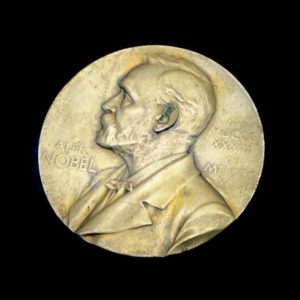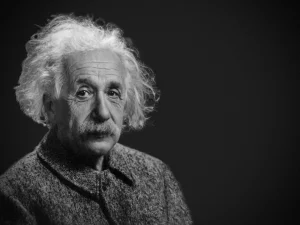
Did you ever wonder why you should get your physics PhD? You may ask yourself if all the effort is really worth it?
The answer to that question ultimately resides in you. So let us try to dig a bit deeper.
What are your main drivers? What get’s you up in the morning? Is it only about the money? Are you keen for intellectual endeavours? Do you like to spend time in the lab?

What, if you could climb that huge PhD mountain after all?
So, let us dive into the (subjective) ultimate reasons to get a physics PhD. Hopefully this gives you some motivation along the way!
1 Intellectual Satisfaction – Chase your Research Dream!
Physics PhD programs are often, literally, out of this world.
Have you ever heard somebody in a corporate job talking about the lattice quantization of lower-dimension Yang-Mills theories?
Or the if there is a supermassive black hole in the center of our galaxy?
No?
That’s simple. Because no company will pay you to just to think. Or for ingenious discussions with the smartest people on this planet. For ideas that might be marketable in 100 years.
These are topics for Nobel prizes!

Go for gold: The Noble prize! Image from Pixabay.
Of course it is not that extreme. Especially experimental and computational physicists can often chose topics that have more real world applications.
But you should not count on an application or a fast way to riches. This is not how a PhD program works.
And it should not be this way. Physicists often need to think out-of-the box. During a Physics PhD program you need to find solutions for which possibly no tools exist yet.
You want to create something new and extraordinary. That’s your passion.
And this is great. A physics PhD takes a lot of effort and endurance.
Before all other necessities you need to acknowledge why solving the problems of the PhD program is important for you. On a personal basis.
These problems and their solutions will be your second nature. And if you are lucky you will discover something unknown.
A PhD program will offer you plentiful intellectual satisfaction. You will get to know colleagues who will introduce you to strange new worlds, new ideas and enlightening concepts.
But there is no gain without pain: You will need to strongly admire this satisfaction. You will go through all the frustrations when one issue becomes five much harder problems.
This will be the test if you can put your research dream to reality.
2 Prove it to Yourself
In the first step we have seen that the intellectual task at hand is important to you. You are willing to go through a lot of hastle to fullfil your dream.
This comes directly to the second reason to get a physics PhD – you want to prove to yourself you can do it.
You see, there are around 500k physicists worldwide. Let’s say 20% of those are PhD, we end up with around 100k physics PhD’s worldwide. With 7.7 billion people on this planet, we have around 0.001% of the entire population as physics PhD’s.
To compare: around 0.1..0.3% are medical doctors,. MD’s are hundred times more frequent.
Physics PhD’s are a very rare species.
And everybody knows: It is a hard way until you are awarded. Physics PhD students have an average IQ of 130.
So, it might be a very legitimate motivation: Prove that you are part of the physics PhD circle.
Now show the world that you understand Newton, Einstein, Feynman and all the other giants in the field.

Prove that you know E = mc² is just a consequence of the conserved impulse in 4 dimensions!
3 Teaching Experience
As a PhD candidate you will most likely take care for undergraduate courses such as seminars.
Do not underestimate that you will probably learn even more than you students. Why? Writing an exam on a certain topic is something totally different than explaining the concepts to students.
Say, you are giving a seminar on classical mechanics or on electromagnetism. Then you will need to align with the responsible professor on the topics. You will prepare short reviews of the topics with practical examples. And you will work out problem sheets and correct student’s works. Among a plethoria of other things.
All these efforts will provide a lot of soft skills that you will need in later jobs as well. Explaining concepts understandably is very hard.
Reasonable teaching skills will have an extremely positive effect on your professional and personal progress.
See what one of the richest people alive, Bill Gates, said about one of the best teachers ever lived, Richard Feynman:
Now, if you would head over to youtube to watch some Feynman lectures I couldn’t blame you.
4 International Conferences and Collaborations
During your graduate program you will eventually travel abroad. You will get to know other cultures, viewpoints and colleagues from all over the world.

Fasten your seatbelts – graduate program means a fair amount of international travel!
There are three ways you will contribute to scientific a conference:
- as listener – you are part of the audience
- with a poster – you present your poster in special sessions
- as speaker – you will give a talk about your PhD subject
All these aspect provide several possibilities for you to discuss and to learn thereby. Do I explain understandably? What is the feedback of my colleagues? Are my results interesting? and so forth.
You will essentially get paid for travelling.
But there is more. You might even head for a visit at another research group. This is very common. Ask for it!
5 Reasonably High Salary
As of 2022, the average annual wage for United States employees is in the order of $70k. Physics PhD’s bank an average of $133k with $5k average bonus.
I don’t know if that’s enough for you. Also, how you can actually earn in your future job is of course not certain. There are too many factors that decide the actual numbers.
A high salary should not be your primary goal as there might be more direct approaches to this particular goal.

Elcon Musk: physicist that changed the banking, automotive and space industry and accidentally became rich.
However, physics PhD’s certainly are at the higher salary end – in all countries. And that’s great. Beside your other motivational topics you will be able to establish a reasonable living style.
Conclusions
Obtaining a physics PhD is not easy. You will need a lot of endurance and willingness to go the extra mile.
But I hope the outlined reasons, beside others, provide a basic motivation to go for it.
At the end of the day you will need to believe in yourself. If you have the inner motivation and think you are a decent candidate, go for it!